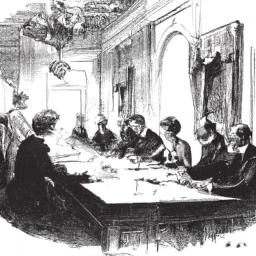The spoils system, also known as the patronage system, refers to the practice of appointing individuals to government positions based on their political loyalty rather than their merit or qualifications. This system gained prominence during Andrew Jackson's presidency from 1829 to 1837 and has been a topic of debate throughout American history.
During the spoils system, political parties rewarded their loyal supporters with government positions as a form of patronage. These positions ranged from lower-level administrative roles to high-ranking positions within federal agencies. The spoils system allowed the party in power to control important government positions and maintain their political influence.
However, the spoils system came under criticism for its lack of merit-based appointments. Critics argued that this practice led to unqualified individuals holding important government positions, which hindered the efficiency and effectiveness of the government. The spoils system also bred corruption, as individuals used their positions for personal gain rather than serving the public interest.
Over time, efforts were made to reform the spoils system and introduce a more merit-based civil-service system. The civil-service system aimed to ensure that government positions were filled based on qualifications and expertise rather than political loyalty. This system sought to create a professional and non-partisan bureaucracy that would serve the public interest.
In recent years, there have been discussions about the potential resurgence of the spoils system. Critics argue that political appointments based on loyalty rather than merit undermine the effectiveness of government agencies and erode public trust. However, proponents argue that political appointments can bring fresh perspectives and align government agencies with the policy goals of the current administration.
In the context of the White House, there have been debates about the extent to which the spoils system influences personnel decisions. Some argue that recent questionnaires and policies indicate a preference for political loyalty over qualifications in appointments. However, former officials have emphasized that accountability, not the spoils system, is the primary focus of these decisions.
Overall, the spoils system remains a topic of debate in American politics. Balancing political loyalty with merit-based appointments is a challenge faced by every administration. Striking the right balance is crucial to ensure the effectiveness and integrity of government agencies.
